Found 31 results for Boaz
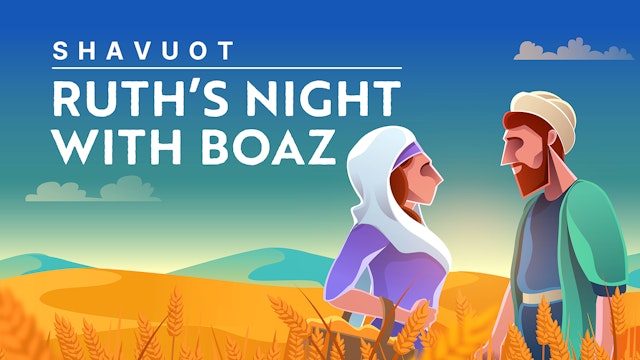
The Story of Boaz and Ruth in the Bible
↳ part 1 of 4 of the series "Did Ruth Seduce Boaz?"
How are we meant to understand the meaning of Ruth and Boaz's scandalous love story? The Book of Ruth is a charming tale, with its likeable protagonist and themes of devotion and kindness woven throughout — and who isn’t moved by that powerful scene, early in the book, when Ruth tells her mother-in-law: “Your people are my people, and your God is my God”? But then… you get to the part with the love story between Ruth and Boaz. Ruth and Boaz's story starts off nicely, slowly… but did you catch that whole weird scene in Chapter 3? During the climax of the story, per Naomi’s instruction, Ruth anoints herself in oils, gets all dressed up, and goes down to Boaz in the middle of the night after he's been drinking. What are we supposed to learn from that? What did your kids think about that part? When you read the story of Ruth and Boaz in shul on Shavuot, did all of those ‘seduction’ themes enhance the spirituality of your Shavuot experience? This love story between Ruth and Boaz can seem peculiar at best and uncomfortable at worst. So why do we read it on Shavuot, and why is it in God’s Holy Bible? Did Ruth seduce Boaz? What's the Bible lesson behind that part of Ruth and Boaz's story? So it turns out that there’s a good reason that we read this story on Shavuot, there’s a good reason that Ruth and Boaz and their whole affair are included in the Bible — and no, we wouldn’t have been better off if the censors had clipped out Chapter 3 altogether (God forbid!). If they had, we’d have been much worse off, because we’d be completely missing one of the central lessons of the Book of Ruth - a lesson that can only be glimpsed when you read this story alongside the other stories of seduction in Ruth’s family. “Which stories of seduction?” you are wondering? You only knew about Chapter 3? In this course, originally created for Shavuot, Rabbi Fohrman revisits the incidences of scandal that have plagued Ruth’s family for generations — and what he finds are, in fact, deep lessons about human relationships, about kindness, and about the ways that we can choose to manipulate one another or truly help one another. It’s a story that redeems the love shared between Ruth and Boaz. Discover other great Shavuot videos at Aleph Beta, including ‘The Hidden Structure of the Ten Commandments’, ‘The Origin Of Shavuot’, and ‘Our Guide To Celebrating Shavuot’.

Kindness and Recognition Converge
↳ part 4 of 4 of the series "Did Ruth Seduce Boaz?"
Rabbi Fohrman brings the focus back to the book of Ruth, showing how elements of both the Lot and his daughter story and the Judah and Tamar story can be seen in the narrative, helping us to understand that through the two elements of these two stories, we can truly understand Ruth.

Recognition and Respect
↳ part 3 of 4 of the series "Did Ruth Seduce Boaz?"
Rabbi Fohrman shifts his focus to the narrative of Judah and Tamar, exploring the commentary of Rashi and how Judah's role in the sale of Joseph resulted in his descending, both physically and spiritually. Rabbi Fohrman emphasizes the value of recognition and respect, connecting the narrative to the book of Ruth.
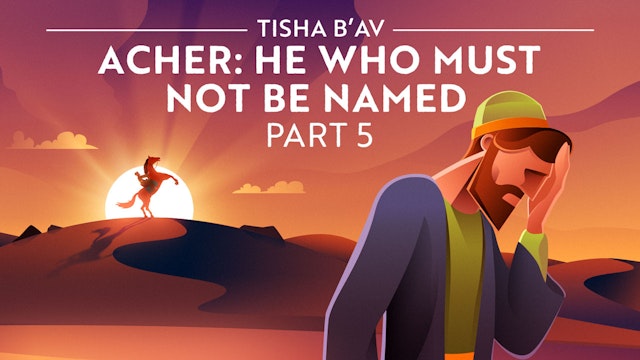
Rabbi Meir And Elisha Ben Abuyah: Part V
↳ part 5 of 5 of the series "Acher: He Who Must Not Be Named"
This is part V of the audio series about Acher and R' Meir.
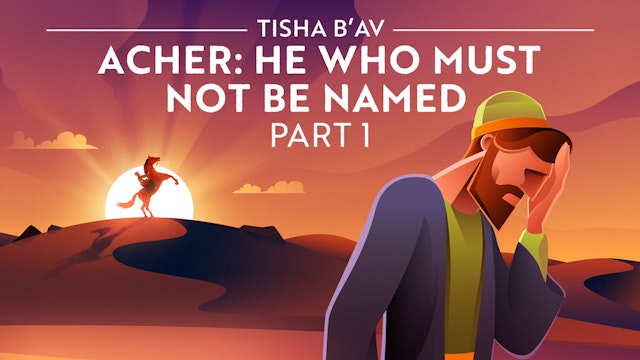
Rabbi Meir And Elisha Ben Abuyah: Part I
↳ part 1 of 5 of the series "Acher: He Who Must Not Be Named"
Can we ever do something so bad there’s no coming back from it? The Talmud tells us that Elisha ben Avuya, the famous apostate “Acher,” was unable to repent. What was it about this man that was so evil that his teshuvah could never be accepted? To complicate the matter even further, we’re told that Elisha’s former student, Rabbi Meir, one of the greatest sages of the Talmud, stayed fiercely loyal to his teacher — even after Elisha renounced Judaism. Why? In this series, Rabbi Fohrman unpacks this incredible episode from the Talmud to uncover what it may teach us about grappling with our shortcomings and the true nature of atonement.

Rabbi Meir And Elisha Ben Abuyah: Part IV
↳ part 4 of 5 of the series "Acher: He Who Must Not Be Named"
This is part IV of the audio series about Acher and R' Meir.
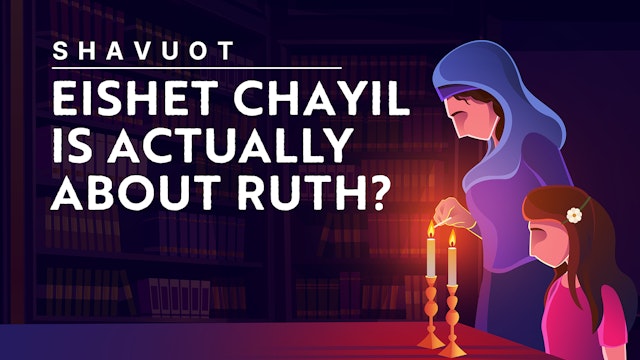
Did King Solomon Pen A Hidden Commentary On Ruth?
Eishet Chayil is the ode to feminine gifts, written by King Solomon in the final chapter of Proverbs, and sung every week, at the Friday night Shabbat table. For generations, many of us have been singing this song every Friday night at our Shabbat table, singing to the woman of the house and extolling her praises. Rabbi Fohrman recorded this live audio in Alon Shvut, Israel, in which he aims to understand the essence of what a "woman of valor" really means. For indeed, the very notion is odd. Valor is often thought of as a masculine virtue – signifying bravery, on the battlefront, or otherwise. And yet, King Solomon uses this phrase when describing what he calls the most important of feminine gifts. Why? Rabbi Fohrman argues that Solomon, in the song of Eishet Chayil, hides a theory of a vision of unique feminine power and strength.
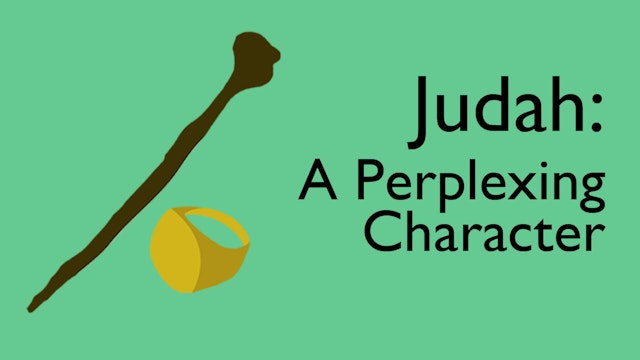
A Tale of Two Digressions
↳ part 51 of 94 of the series "The Joseph Story"
Judah: A Perplexing Character?
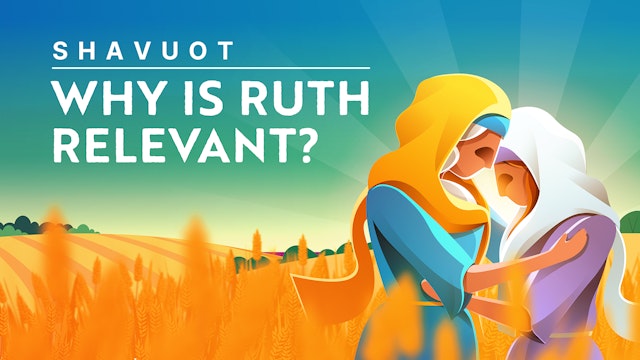
The Book of Ruth Explained
↳ part 1 of 5 of the series "Why Ruth’s Story Captures Shavuot Perfectly"
On the surface, the book of Ruth seems like an unusual choice to read on Shavuot. After all, Shavuot is the day the Jewish people recall standing at Mount Sinai and receiving the Torah from God. It’s an awesome occasion, commemorating our spiritual pinnacle as a people! What does a 'day in the life of Beit Lechem' have anything to do with that? Rabbi Fohrman takes a closer look at Megillat Ruth and begins to uncover the ways in which Ruth's story is much deeper than it appears. Discover other great Shavuot videos at Aleph Beta, including ‘The Hidden Structure of the Ten Commandments’, ‘The Scandalous Backstory of Boaz & Ruth’, and ‘Why Do We Celebrate Shavuot Laws’.
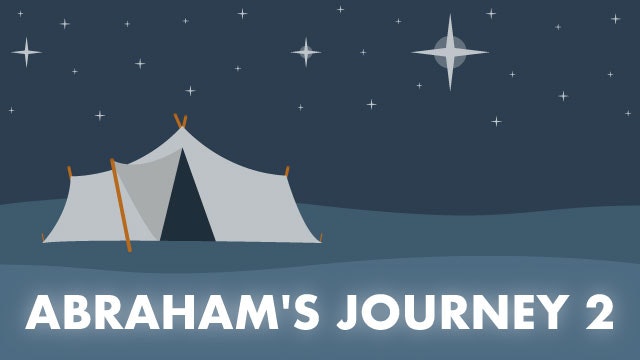
Lecture VIII
↳ part 8 of 8 of the series "Abraham's Journey 2"
Please note that this is the last lecture of Abraham's Journey II. We hope you enjoyed, and please comment and ask questions below! Abraham's Journey 2 is the third of four sets of lecture series that span the entire book of Genesis! Be sure to listen to it all! The first two set of lectures are found in the series titled: A Brief History Of The World: From Adam To Abraham and Abraham's Journey 1. The following lecture series is Jacob: Man of Truth?
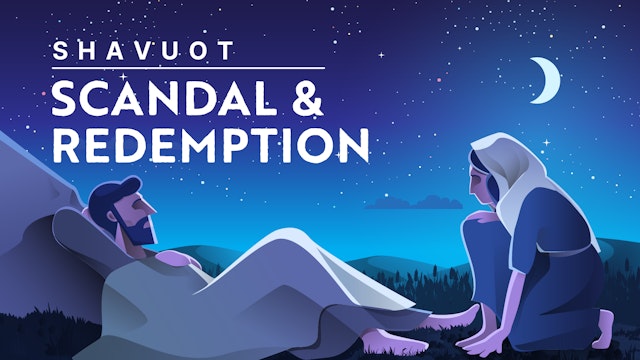
Book Of Ruth I
↳ part 6 of 7 of the series "How Ruth Resolved a Centuries-Long Scandal"
Book of Ruth - Part 1

Brotherly Love
↳ part 5 of 5 of the series "Why Ruth’s Story Captures Shavuot Perfectly"
Rabbi Fohrman connects the early stories in Genesis to Megillat Ruth and explains how Ruth's actions are a culmination of the dream that Abraham had so many years before. By delving deeper into the Megilla we are able to discern what the Jewish people's mission statement really is.